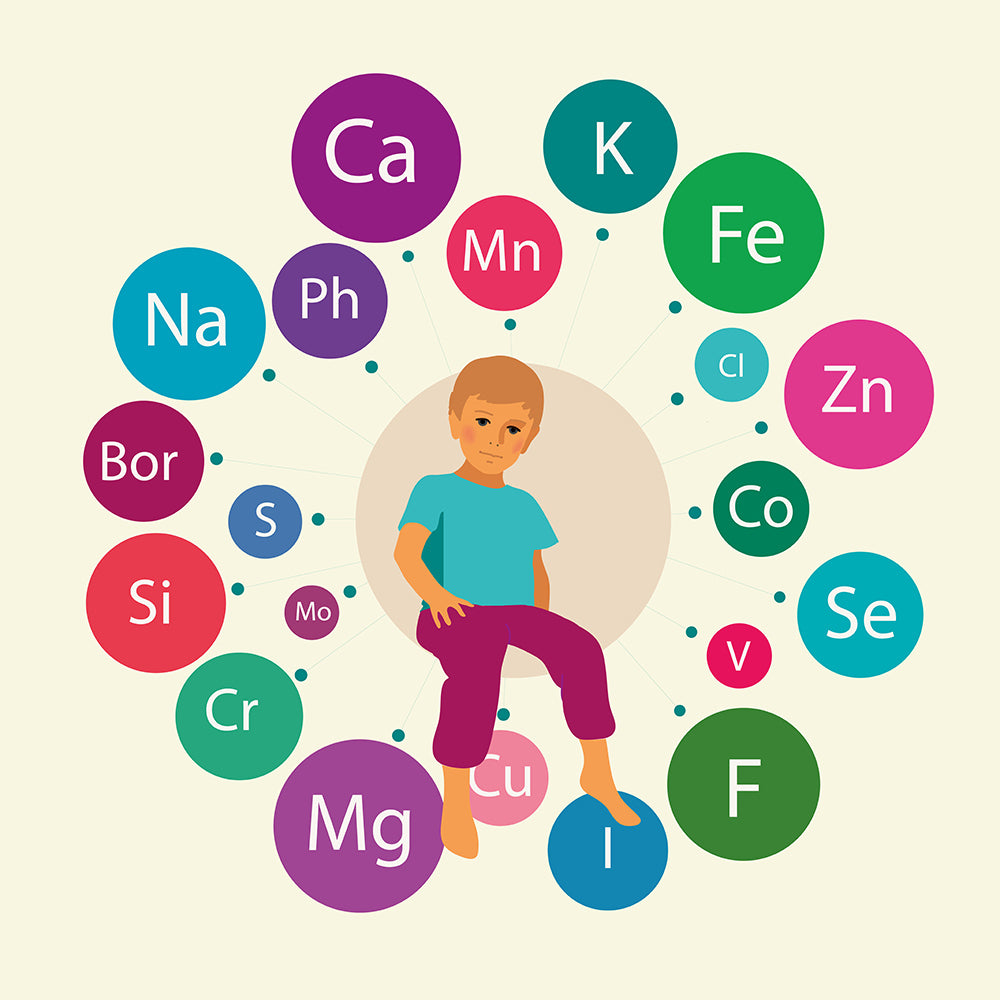Micronutrients - The Forgotten Spark Plugs of Energy

Having the energy to give our best performance every day, whether that be mentally in our work, physically in our sport, or emotionally to support friends and family, can be taken for granted when we are fit and well. However fatigue with its many causes can be debilitating and life changing such as in the case of long-COVID, where fatigue is the number one complaint. Here we look at some of the less talked about nutrients that support the efficient production of energy, and where we can find these powerhouses of performance.
The energy cycle
The human body is complex and truly amazing. The act of breaking down our everyday meals, using the energy to build and replace worn out cells, and give cells the energy they need to function and protect us is constantly ticking over. Proteins, fats and carbohydrates are the building blocks of this cycle, with enzymes helping to convert and speed up the release of their energy.
However, enzymes need support to do their job well in the form of vitamins and minerals, and if we become deficient in these micronutrients, the greater the possibility of a blockage in the conversion process, and our energy levels may become compromised.
Iron is one of the more well known minerals linked to energy, in part due to lethargy being a symptom of it’s deficiency state, anaemia. Iron is not only needed by enzymes to process energy, but is required for oxygen transport around the body in our blood. Whilst the body can store and use iron for times when we don't consume enough, ultimately a deficiency will reduce our capacity to exercise and our immune system. Menstruating women have greater needs for iron than men, particularly those with heavy periods, which is why our organic female multi contains a whopping 18mg of iron. Vegetarian sources of iron (called non-heme) such as beans, spinach and lentils are more poorly absorbed than animal sources (heme), e.g. meat, fish, seafood, so vegetarians are likely to need more.
B vitamins - One or more of the B vitamins are involved in every aspect of generating energy within cells, and deficiency in any one B vitamin will have negative consequences. The cellular engines called ‘mitochondria’ within our cells need B vitamins which we must obtain from our diet, such as cereals, meat, fish, dairy and vegetables, the exception being B12, which we have to acquire from animal products. Because B vitamins are water soluble, they are less likely to be stored in the body, therefore we need a more consistent approach to consumption, such as in our organic female multivitamin and our male organic multi.

Magnesium - this mineral supports over 300 enzymatic reactions in the body including energy formation, generating the active form of Vitamin D, as well as the making of our DNA. Magnesium is also crucial for our bones, nerves, and handling of blood sugar, it can help maintain our sensitivity to insulin, which if lost can lead to Type 2 Diabetes. It has the nickname ‘nature’s tranquilizer’, and our Super Magnesium is a useful supplement in insomnia, anxiety as well as weight management. High magnesium foods include dark leafy greens, seeds, beans, fish, whole grains, nuts, and dark chocolate.
Zinc - another mineral for enzyme reactions in energy production, but is also known for its role in immune function and wound repair. The loss of taste as a COVID symptom is thought to be from rapid use of zinc stores, and the use of zinc in the early stages of the common cold may reduce the duration and severity of symptoms. Zinc citrate can support energy and immunity. Food sources include red meat, oysters and mussels and for vegetarians, beans, peas and fortified foods.
CoQ10 - is another co-factor in energy production, and an antioxidant protecting the energy pathways from free radicals that may disrupt the conversion process. As such, CoQ10 is essential for the health of virtually all human tissues and organs supporting the immune system, physical performance and protecting our DNA from damage. Food sources include oily fish (such as salmon and tuna), organ meats (such as liver), and whole grains.
So, the quality as well as quantity of our food has a big role to play in maintaining and improving our health. A rainbow of colourful fruits and vegetables with lean meat and fish is a great place to start, supported with supplements like our Supreme Greens Powder, containing 14 vegetables and 8 fruits, a great addition for smoothies and life on the go.
If you are in any doubt about what supplements are right for you, please get in touch.
Team NN
References:
Beard, J.L. (2001). Iron Biology in Immune Function, Muscle Metabolism and Neuronal Functioning, The Journal of Nutrition, 131(2), 568S–580S, https://doi.org/10.1093/jn/131.2.568S
Kennedy D.O. (2016). B Vitamins and the Brain: Mechanisms, Dose and Efficacy--A Review. Nutrients, 8(2), 68. https://doi.org/10.3390/nu8020068
National Institutes of Health (2021) Zinc Factsheet. https://ods.od.nih.gov/factsheets/Zinc-Health%20Professional/
Oyagbemi, A. A., Ajibade, T. O., Aboua, Y. G., et al., (2021). Potential health benefits of zinc supplementation for the management of COVID-19 pandemic. Journal of food biochemistry, 45(2), e13604. https://doi.org/10.1111/jfbc.13604
Razzaque M.S. (2018). Magnesium: Are We Consuming Enough?. Nutrients, 10(12), 1863. https://doi.org/10.3390/nu10121863
Saini R. (2011). Coenzyme Q10: The essential nutrient. Journal of pharmacy & bioallied sciences, 3(3), 466–467. https://doi.org/10.4103/0975-7406.84471


Leave a comment